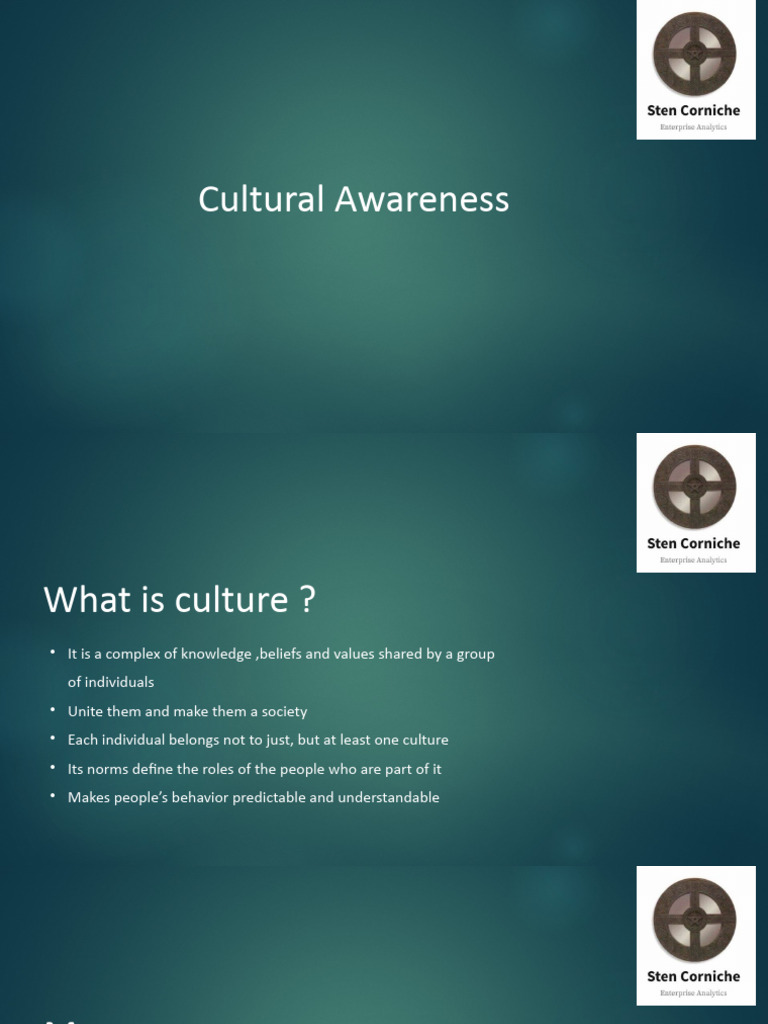Cultural awareness encompasses a deep understanding of the myriad ways in which diverse societies express their values, traditions, and behaviors. In our increasingly globalized world, the ability to appreciate and respectfully engage with various cultures is more crucial than ever. This phenomenon is not merely an academic pursuit; it can significantly impact our collective response to some of the era’s most pressing challenges, including climate change.
When we ponder the question, “How can cultural awareness enhance our global perspective on climate change?” we begin to unravel an intricate web of interconnectedness. Each culture possesses unique relationships with their environment, shaped by historical, geographical, and social factors. For instance, indigenous communities often have a profound spiritual connection with the land, viewing it as a living entity deserving of respect and protection. Conversely, industrialized societies may approach environmental issues through a lens of technological innovation and economic growth.
This disparity in perspectives poses a potential challenge: how do we reconcile these vastly different worldviews to achieve a unified response to climate crises? The answer lies in fostering cultural awareness. By understanding the values that underpin different approaches to environmental stewardship, we can create more inclusive and effective strategies. Imagine a collaborative platform where stakeholders from various cultural backgrounds share their insights and methods for sustainability. What innovative solutions might emerge from such an exchange?
Cultural awareness nurtures empathy, allowing individuals to appreciate the histories and struggles of other societies. This empathy is vital when confronting environmental issues that disproportionately affect marginalized communities. For instance, climate-induced disasters often exacerbate existing social inequities. When we recognize that communities in the Global South contribute the least to global emissions but suffer the most from climate impacts, we cultivate a sense of global responsibility. This awareness can inspire action, pushing individuals and organizations alike to advocate for equitable policy changes.
Furthermore, a global perspective enriched by cultural awareness encourages the examination of local practices that can serve as models for sustainable living. Many cultures have long-standing traditions of conservation and resource management that are often overlooked in modern environmental discourse. For example, in some Pacific Island nations, the practice of “kupuna,” or elder-led stewardship of natural resources, illustrates an effective communal approach to ecology. By integrating such indigenous practices into mainstream conservation efforts, we can potentially enhance their efficacy and sustainability.
In this context, education plays a pivotal role. Educational systems worldwide must evolve to include a curriculum that emphasizes cultural awareness and global interdependence. Imagine students engaging with topics that not only highlight their local environmental issues but also connect them to global narratives. A classroom discussion on deforestation in the Amazon could seamlessly transition to discourse on its implications for global climate patterns. Such educational frameworks prepare future leaders to think critically and empathetically about the challenges we face as a planet.
Moreover, the digital age has presented an avenue for cultural exchange and awareness. Social media platforms and virtual collaborations can bridge geographical divides. They allow activists, educators, and community leaders to disseminate indigenous knowledge or innovative practices rapidly. However, this connectivity also poses challenges regarding representation. Whose voices are amplified in these discussions? It is essential that platforms are made accessible to all cultures, particularly those historically marginalized in global conversations about climate change. This intentional inclusivity is critical if we are to cultivate a truly global perspective.
Another dimension of cultural awareness pertains to language. Language shapes thought, and the lexicon used in environmental dialogues can either inclusively or exclusively frame issues. Terms like “sustainable development” may resonate differently across cultures, carrying unique connotations based on local experiences. Furthermore, translating scientific terminology into local dialects can democratize environmental discussions, ensuring that every community feels empowered to participate in the dialogue surrounding their destinies.
To grapple with the multifaceted nature of climate change, we must also acknowledge the psychological barriers that cultural differences may present. Cognitive dissonance—the mental discomfort experienced when one’s beliefs conflict with their actions—can hinder our collective progress. For instance, individuals in affluent societies may struggle to align their consumption habits with their environmental beliefs. Awareness of cultural practices that prioritize frugality and community sharing can help alleviate such conflicts. Engaging with these practices can shift mindsets, motivating individuals to adjust their behaviors towards more sustainable lifestyles.
Furthermore, supporting cultural preservation is an essential aspect of addressing climate change. As the environment shifts, many cultural practices and identities are at risk of erosion. By championing the preservation of cultural heritage, we can sustain the diverse approaches to environmental stewardship that have evolved over centuries. Cultural diversity is not merely a relic of the past; it is a reservoir of wisdom that can inform contemporary ecological practices.
In conclusion, fostering cultural awareness is indispensable for cultivating a truly global perspective on climate change. By appreciating and integrating varied cultural insights into environmental strategies, we can craft holistic solutions that honor the complexity of our shared challenges. Are we willing to embrace the richness of human experience to pave the way for a more sustainable future? The answer lies in our collective actions today. Let us strive to engage in discussions that not only enhance our understanding of cultural differences but also unite us in the common goal of safeguarding our planet for generations to come.
